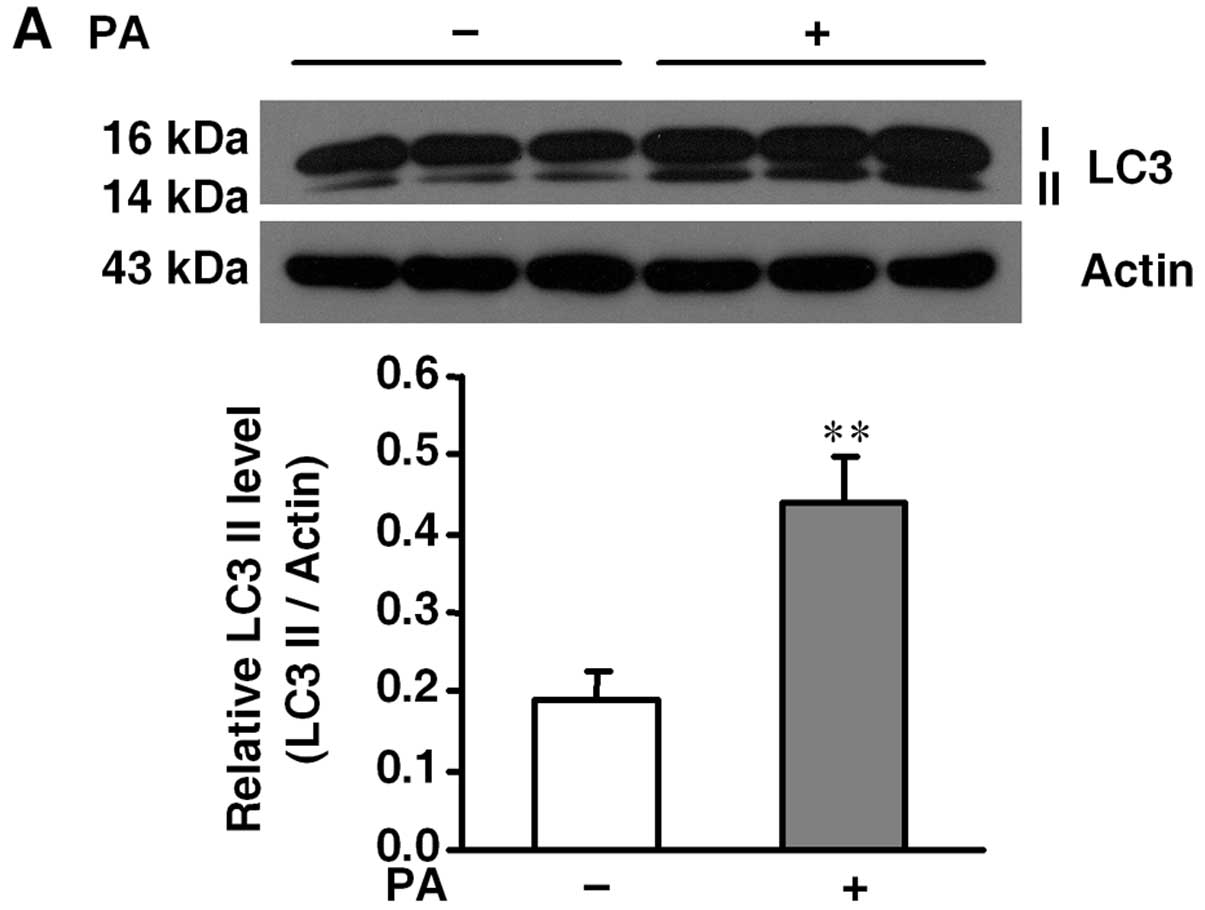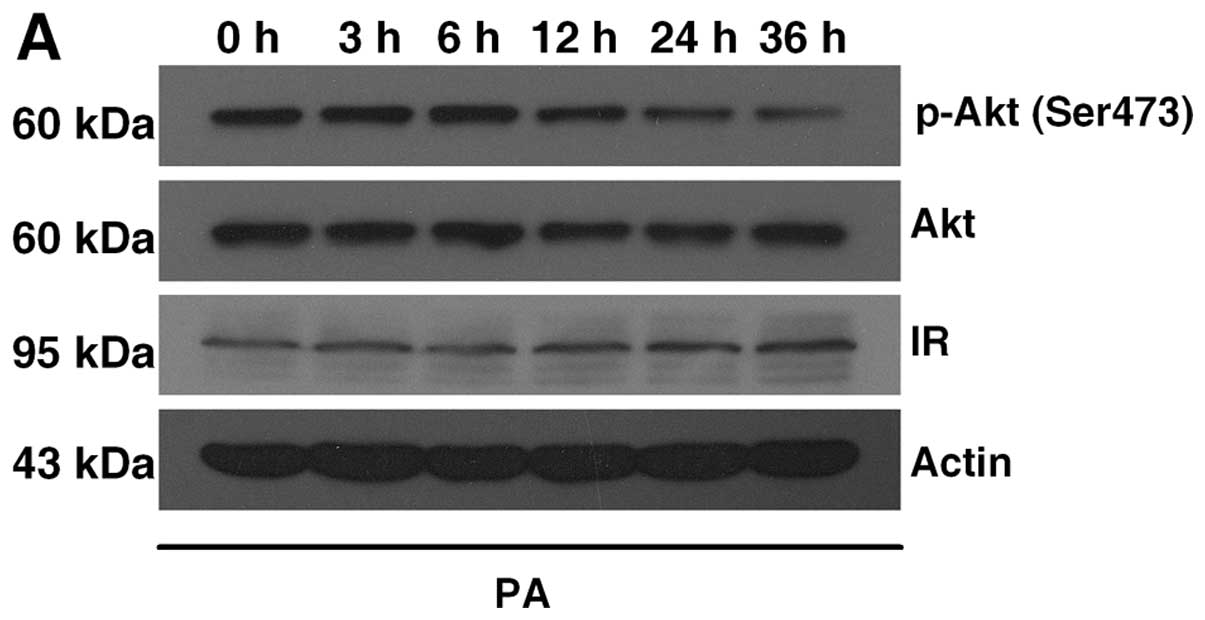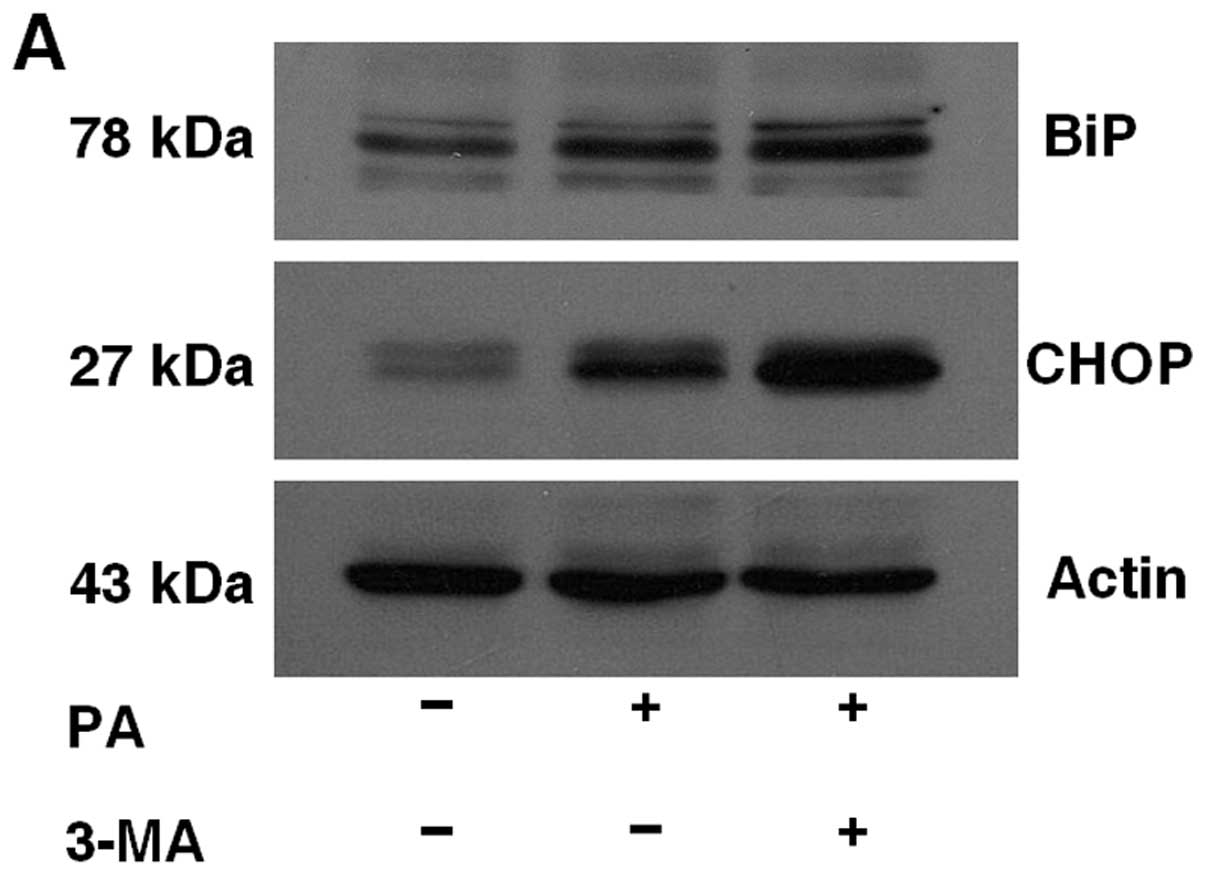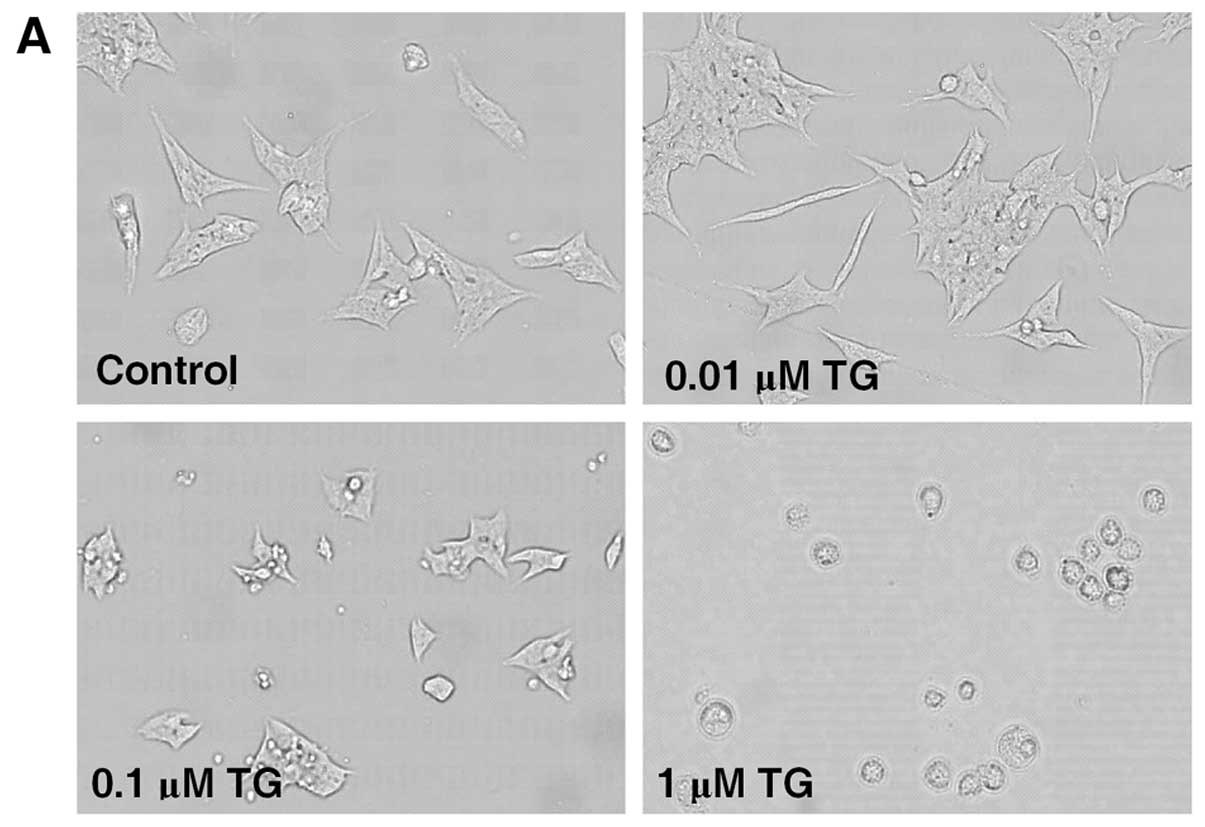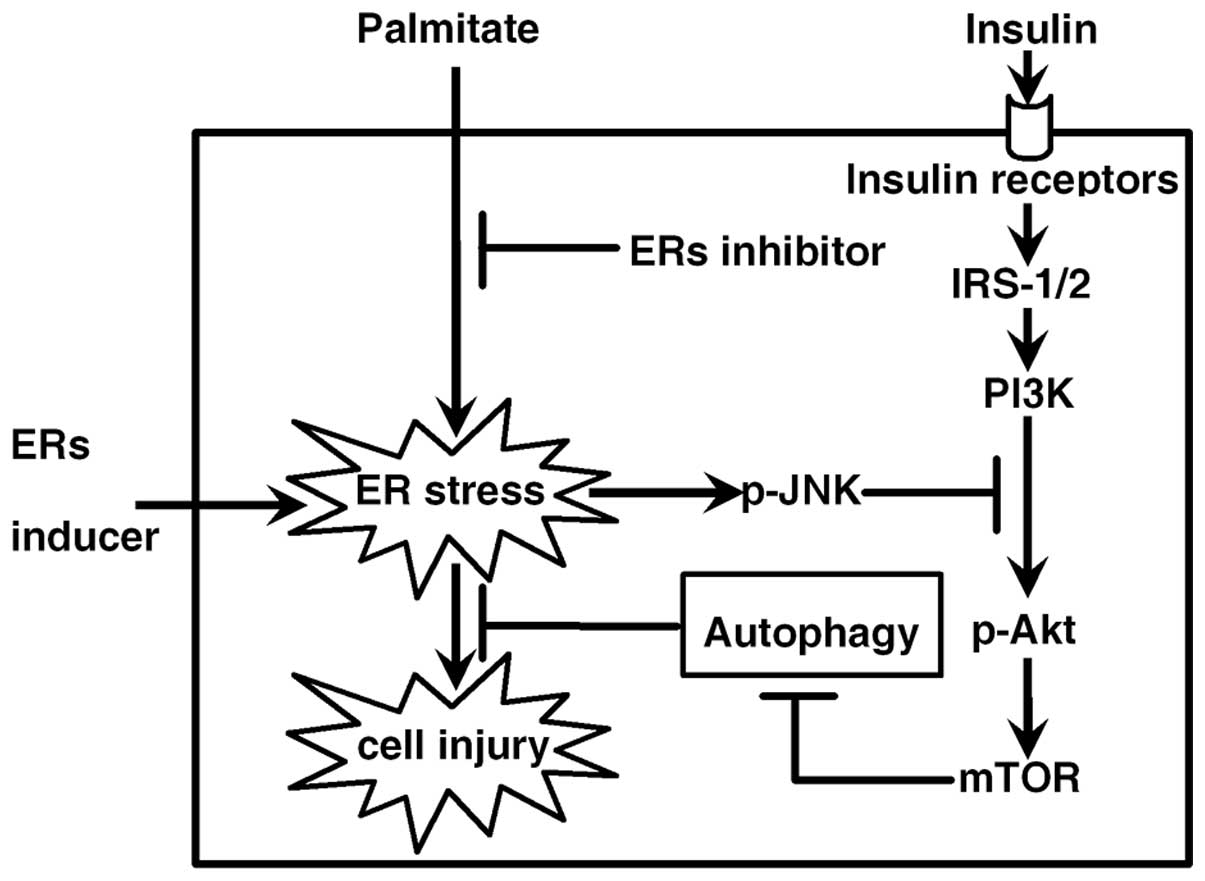|
1
|
Fujitani Y, Ebato C, Uchida T, Kawamori R
and Watada H: β-cell autophagy: a novel mechanism regulating β-cell
function and mass: lessons from β-cell-specific Atg7-deficient
mice. Islets. 1:151–153. 2009.
|
|
2
|
Ebato C, Uchida T, Arakawa M, Komatsu M,
Ueno T, Komiya K, Azuma K, et al: Autophagy is important in islet
homeostasis and compensatory increase of beta cell mass in response
to high-fat diet. Cell Metab. 8:325–332. 2008. View Article : Google Scholar : PubMed/NCBI
|
|
3
|
Jung HS, Chung KW, Won Kim J, Kim J,
Komatsu M, Tanaka K, Nguyen YH, et al: Loss of autophagy diminishes
pancreatic beta cell mass and function with resultant
hyperglycemia. Cell Metab. 8:318–324. 2008. View Article : Google Scholar : PubMed/NCBI
|
|
4
|
Choi SE, Lee SM, Lee YJ, Li LJ, Lee SJ,
Lee JH, Kim Y, et al: Protective role of autophagy in
palmitate-induced INS-1 beta-cell death. Endocrinology.
150:126–134. 2009. View Article : Google Scholar : PubMed/NCBI
|
|
5
|
Fujimoto K, Hanson PT, Tran H, Ford EL,
Han Z, Johnson JD, Schmidt RE, et al: Autophagy regulates
pancreatic beta cell death in response to Pdx1 deficiency and
nutrient deprivation. J Biol Chem. 284:27664–27673. 2009.
View Article : Google Scholar : PubMed/NCBI
|
|
6
|
Masini M, Bugliani M, Lupi R, del Guerra
S, Boggi U, Filipponi F, Marselli L, et al: Autophagy in human type
2 diabetes pancreatic beta cells. Diabetologia. 52:1083–1086. 2009.
View Article : Google Scholar : PubMed/NCBI
|
|
7
|
Levine B and Klionsky DJ: Development by
self-digestion: molecular mechanisms and biological functions of
autophagy. Dev Cell. 6:463–477. 2004. View Article : Google Scholar : PubMed/NCBI
|
|
8
|
Kuma A, Hatano M, Matsui M, Yamamoto A,
Nakaya H, Yoshimori T, Ohsumi Y, et al: The role of autophagy
during the early neonatal starvation period. Nature. 432:1032–1036.
2004. View Article : Google Scholar : PubMed/NCBI
|
|
9
|
Komiya K, Uchida T, Ueno T, Koike M, Abe
H, Hirose T, Kawamori R, et al: Free fatty acids stimulate
autophagy in pancreatic β-cells via JNK pathway. Biochem Biophys
Res Commun. 401:561–567. 2010.PubMed/NCBI
|
|
10
|
Karaskov E, Scott C, Zhang L, Teodoro T,
Ravazzola M and Volchuk A: Chronic palmitate but not oleate
exposure induces endoplasmic reticulum stress, which may contribute
to INS-1 pancreatic beta-cell apoptosis. Endocrinology.
147:3398–3407. 2006. View Article : Google Scholar
|
|
11
|
Cnop M, Igoillo-Esteve M, Cunha DA,
Ladrière L and Eizirik DL: An update on lipotoxic endoplasmic
reticulum stress in pancreatic beta-cells. Biochem Soc Trans.
36:909–915. 2008. View Article : Google Scholar : PubMed/NCBI
|
|
12
|
Lai E, Bikopoulos G, Wheeler MB,
Rozakis-Adcock M and Volchuk A: Differential activation of ER
stress and apoptosis in response to chronically elevated free fatty
acids in pancreatic beta-cells. Am J Physiol Endocrinol Metab.
294:E540–E550. 2008. View Article : Google Scholar : PubMed/NCBI
|
|
13
|
Cnop M, Ladrière L, Igoillo-Esteve M,
Moura RF and Cunha DA: Causes and cures for endoplasmic reticulum
stress in lipotoxic β-cell dysfunction. Diabetes Obes Metab.
12:76–82. 2010.PubMed/NCBI
|
|
14
|
Ogata M, Hino S, Saito A, Morikawa K,
Kondo S, Kanemoto S, Murakami T, et al: Autophagy is activated for
cell survival after endoplasmic reticulum stress. Mol Cell Biol.
26:9220–9231. 2006. View Article : Google Scholar : PubMed/NCBI
|
|
15
|
Qin L, Wang Z, Tao L and Wang Y: ER stress
negatively regulates AKT/TSC/mTOR pathway to enhance autophagy.
Autophagy. 6:239–247. 2010. View Article : Google Scholar : PubMed/NCBI
|
|
16
|
Mizushima N and Yoshimori T: How to
interpret LC3 immunoblotting. Autophagy. 3:542–545. 2007.
View Article : Google Scholar : PubMed/NCBI
|
|
17
|
Klionsky DJ, Elazar Z, Seglen PO and
Rubinsztein DC: Does bafilomycin A1 block the fusion of
autophagosomes with lysosomes? Autophagy. 4:849–950. 2008.
View Article : Google Scholar : PubMed/NCBI
|
|
18
|
Ozcan U, Yilmaz E, Ozcan L, Furuhashi M,
Vaillancourt E, Smith RO, Görgün CZ, et al: Chemical chaperones
reduce ER stress and restore glucose homeostasis in a mouse model
of type 2 diabetes. Science. 313:1137–1140. 2006. View Article : Google Scholar : PubMed/NCBI
|
|
19
|
Urano F, Wang X, Bertolotti A, Zhang Y,
Chung P, Harding HP and Ron D: Coupling of stress in the ER to
activation of JNK protein kinases by transmembrane protein kinase
IRE1. Science. 287:664–666. 2000. View Article : Google Scholar : PubMed/NCBI
|
|
20
|
Hirosumi J, Tuncman G, Chang L, Görgün CZ,
Uysal KT, Maeda K, Karin M, et al: A central role for JNK in
obesity and insulin resistance. Nature. 420:333–336. 2002.
View Article : Google Scholar : PubMed/NCBI
|
|
21
|
Leibiger IB, Leibiger B and Berggren PO:
Insulin signaling in the pancreatic beta-cell. Annu Rev Nutr.
28:233–251. 2008. View Article : Google Scholar : PubMed/NCBI
|
|
22
|
Kahn CR, Brüning JC, Michael MD and
Kulkarni RN: Knockout mice challenge our concepts of glucose
homeostasis and the pathogenesis of diabetes mellitus. J Pediatr
Endocrinol Metab. 13:1377–1384. 2000.PubMed/NCBI
|
|
23
|
Wu YT, Tan HL, Huang Q, Ong CN and Shen
HM: Activation of the PI3K-Akt-mTOR signaling pathway promotes
necrotic cell death via suppression of autophagy. Autophagy.
5:824–834. 2009. View Article : Google Scholar : PubMed/NCBI
|
|
24
|
Scarlatti F, Bauvy C, Ventruti A, Sala G,
Cluzeaud F, Vandewalle A, Ghidoni R, et al: Ceramide-mediated
macroautophagy involves inhibition of protein kinase B and
up-regulation of beclin 1. J Biol Chem. 279:18384–18391. 2004.
View Article : Google Scholar : PubMed/NCBI
|
|
25
|
Meijer AJ and Codogno P: Macroautophagy:
protector in the diabetes drama? Autophagy. 3:523–526. 2007.
View Article : Google Scholar : PubMed/NCBI
|
|
26
|
Leibowitz G, Cerasi E and Ketzinel-Gilad
M: The role of mTOR in the adaptation and failure of beta-cells in
type 2 diabetes. Diabetes Obes Metab. 10:157–169. 2008. View Article : Google Scholar : PubMed/NCBI
|
|
27
|
Matsuda T, Kido Y, Uchida T and Kasuga M:
Reduced insulin signaling and endoplasmic reticulum stress act
synergistically to deteriorate pancreatic beta cell function. Kobe
J Med Sci. 54:E114–E121. 2008.PubMed/NCBI
|
|
28
|
Ozcan U, Cao Q, Yilmaz E, Lee AH, Iwakoshi
NN, Ozdelen E, Tuncman G, et al: Endoplasmic reticulum stress links
obesity, insulin action, and type 2 diabetes. Science. 306:457–461.
2004. View Article : Google Scholar : PubMed/NCBI
|















